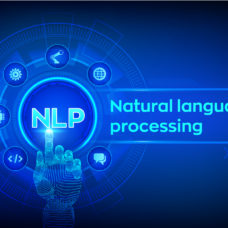As many YouTube ads plug every day, Grammarly wants to be your go-to tool for writing and editing. It even integrated with Google Docs and Microsoft Word despite some issues. But, as it tends to do, Google developed its own version of a similar tool.
First announced at Cloud Next 2018, the AI-based grammar technology known as Grammar Suggestions launched this week.
We wrote about it back in July of 2018 where some users got sneak peeks via the Early Adopter Program. It showed how a machine translation algorithm recognized errors in real-time. It also included Google’s predictive text which is active in Gmail right now.
Grammar Suggestions Leverages Humans and AI
Google invested heavily in machine translation for Grammar Suggestion’s development. However, G Suite product manager Vishnu Sivaji mentioned in a blog post that the research involved linguists, too.
“Using machine translation, we are able to recognize errors and suggest corrections as work is getting done. We worked closely with linguists to decipher the rules for the machine translation model and used this as the foundation of automatic suggestions in your Docs, all powered by AI…”
Sivaji further explained that the machine translation can capture many different corrections. It isn’t limited to simple punctuation fixes and typo fixes. It can find more complex syntax errors like subordinate clause use.
How Natural Language Processing Plays a Role
What’s most difficult about machine translation revolves around language rulesets. After all, they not only differ by language, but by region, dialect, age, and a number of other factors.
Just consider meme-culture and how younger people who grew up with the internet speak vs. older generations. Now imagine trying to create a database that recognizes words like longcat and doge as well as Shakespearean English and programming language terms.
With just three categories, you already have a very complex ruleset. That’s why linguists and other natural language specialists came into play.
As seen in the video above, using orphan questions and semantic clusters helps Inbenta more accurately and naturally identify speaker intent. This helps to craft more realistic and useful responses.
But, as we mentioned in our initial article, there are many AI-based tools out there already. How Google will set Grammar Suggestions and its machine translation apart remains a mystery.
Sadly, not all users have the feature as of yet.
We non-business users will have to wait as the expansion continues to roll out. The tool will be automatically turned on by default, so a wider release should come sooner rather than later.



















My only complaint is it doesn’t take SEO into account like INK for All http://bit.ly/2IiHXlQ
How To Find Your Lost Cryptocurrency.
My name is George Lucas. I want to testify about GEO COORDINATES HACKER. They helped me recover my stolen crypto worth $370,000 through their hacking skills. I want to recommend this great hacker to anyone that truly needs an urgent solution. You can also contact them via
Email; geovcoordinateshacker@proton.me
Email; geovcoordinateshacker@gmail.com Telegram ( @Geocoordinateshacker )Website; https://geovcoordinateshac.wixsite.com/geo-coordinates-hack